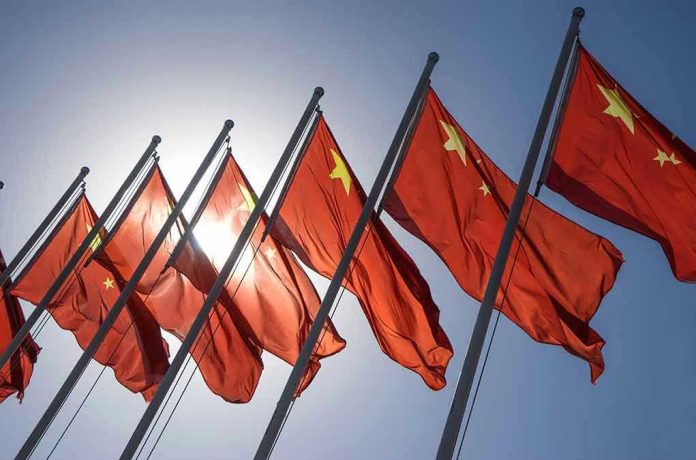
China’s denial of military ambitions in the South Pacific leaves Western powers and Pacific islanders alike questioning just who is calling the shots in their own backyard—and raises the age-old question: when does “no” really mean “no” with Beijing?
At a Glance
- China officially denies any plans to build military bases in the South Pacific, including Fiji.
- Fiji’s Prime Minister publicly rejects the idea of a Chinese military presence, reaffirming national sovereignty.
- Western nations remain deeply suspicious of China’s “aid with no strings attached” narrative.
- The Pacific remains on edge as superpower rivalry intensifies and transparency stays in short supply.
China’s “Nothing to See Here” Routine in the Pacific
China’s embassy in Fiji, in what can only be described as a masterclass in diplomatic poker face, has once again repeated that there’s no ambition—none whatsoever!—to build a military base anywhere in the South Pacific. Their aid, they say, comes with “no political strings attached.” Naturally, Western media and the folks running Australia’s and America’s foreign policy are supposed to take Beijing at its word. Because, as history has shown us, authoritarians always tell the full story the first time, right? Meanwhile, Fiji’s Prime Minister Sitiveni Rabuka didn’t mince words during a recent trip to Australia, telling the world that if China wants a base in Fiji, they’re going to have to look elsewhere. “Not Fiji. And I think that China understands that well,” he said, effectively slamming the door—at least for now—on any grand Chinese military plans in the region.
But the timing and context here are impossible to ignore. Just a few years ago, China inked a secretive security pact with the Solomon Islands, sending shivers down the spines of every Western security official from Canberra to Washington. That agreement remains under wraps, fueling speculation that Beijing is quietly laying the groundwork for a permanent military footprint in the Pacific—and let’s be honest, nobody signs “secret” security deals just to swap recipes for pork buns. The Pacific has become a new front in the never-ending chess game between free societies and the world’s largest surveillance state.
Western Skepticism and the “No Strings Attached” Farce
Pardon the skepticism, but the phrase “no political strings attached” coming from the Chinese Communist Party is about as reassuring as a fox telling the hens the coop is totally safe. Western officials have been warning for years that China’s “development aid” is anything but charity. In the Solomon Islands, the unpublished security pact left the door wide open for Chinese troops, ships, and who knows what else to roll in at a moment’s notice. And while Beijing keeps insisting it’s all about development and friendship, the pattern is clear: big loans, shiny infrastructure, and then—surprise!—all roads lead to Beijing.
China’s denials are part of a well-worn playbook: offer up enough plausible deniability to keep the critics guessing, while slowly expanding influence until the facts on the ground can’t be ignored. Western allies, particularly Australia and the United States, aren’t buying it, and they’re pouring more aid and security guarantees into the Pacific to counter China’s charm offensive. But let’s face it: the real victims here are the people of the Pacific, forced to choose between the new money from Beijing and the old guard’s promises of security and sovereignty. It’s a choice no free nation should have to make.
The Real Stakes for the Pacific—and for America
China’s growing presence in the Pacific isn’t just a matter of who funds the next port or highway; it’s about who gets to shape the rules of the region for decades to come. Pacific Island nations are among the smallest and most vulnerable on earth, and with climate change and economic instability, they’re ripe for foreign meddling. Beijing’s strategy is simple: use aid and investment to win loyalty, then leverage that for political or even military advantage down the line. Sound familiar? It should. We’ve seen this script play out from Africa to Southeast Asia.
For Americans—and anyone who still believes in the sovereignty of nations, the rule of law, and the basic right to choose your own destiny—this is a clarion call. The Pacific may seem far away, but history has shown us time and again that what happens in these supposedly “remote” regions can have massive consequences for global security and American interests. The last thing we need is another adversary building military infrastructure within striking distance of our closest allies.
The bottom line? China can say “no” to military bases all it wants. But until there’s real transparency and a clear end to these secret deals, only a fool would take Beijing at its word. Pacific nations deserve better than to be pawns in a global power game, and Americans deserve leaders who stand up to foreign influence—whether it comes wrapped in a ribbon of “development aid” or not.
Sources:
Tag24: China responds to reports of plan to build military base in South Pacific
Eurasian Times: Super Power Rivalry In The Pacific China Says No Plans To Build …









